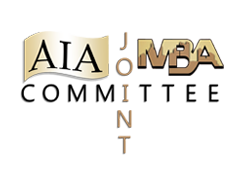

Procurements & Supplements
Section I-2
Qualifications Based Selection System for Design Professionals
The first step of any delivery system is that of building the design team. Qualifications Based Selection (QBS) is a method where a design professional's qualifications, not fee, is the determining factor in selecting a firm. It places fee negotiation at the end of the selection process. While price may have its place within the selection process, it alone should not be the determining selection factor. The fee is also negotiated allowing for a give-and-take between the Owner and design professional to clearly delineate the scope of services and arrive at a mutually agreeable sum.
Professional organizations, such as the American Institute of Architects (AIA), the American Council of Engineering Companies (ACEC), the American Society of Civil Engineers (ASCE), the American Bar Association (ABA), and client organizations, such as the American Public Works Association, strongly support or require the use of QBS for procuring professional design services. Additionally, QBS is required for federal projects as described by the Brooks Architect/Engineer Act (Public Law 92-582, 40 U.S.C. 541 et seq.) which states that "the Congress hereby declares it to be the policy of the Federal Government to publicly announce all requirements for architectural and engineering services and to negotiate contracts for architectural and engineering services on the basis of demonstrated competence and qualifications."
QBS provides owners with a selection process that is not only straightforward and easy to implement, but is objective and fair. It recognizes that design professionals play a critical role in the building process. The reason for this is clear: Projects that are contracted solely on price do not take into account the myriad additional factors that go into building design. Building design and space planning are evolving processes and much goes into them, even after the drawings are signed, sealed and delivered. In fact, one of the design professional's principal duties is to ensure that the construction process goes smoothly.
It is a design professional's experience, expertise, and ability to resolve unforeseen problems creatively that will keep a construction project moving forward. These intangibles are common throughout the process. As a result, owners who rely only on a submitted bid as the project cost may be placed in a difficult position if the final cost is significantly higher.
QBS helps resolve the projected vs. final cost dilemma by negotiating the project's cost with the most qualified firm among the applicants. QBS also fosters a collaborative environment, so the roles of all stakeholders are known, documented and understood. Finally, because the selection process is well-documented, decisions the owner makes are more likely to stand up to public scrutiny.
The QBS process for recruiting design professionals follows a well-established sequence.
- The Owner issues a request for qualifications (RFQ);
- Professional entities or individuals respond to the RFQ;
- The Owner reviews the qualifications based upon past performance, technical competence, capacity to accomplish the work and related factors;
- The Owner ranks the firms, with the best-qualified firm ranked first, the second most qualified second, and so on;
- The Owner commences negotiations with the top-ranked firm to reach a mutual understanding of scope;
- And the parties negotiate a fair and reasonable price for the services required.
If the Owner and top-ranked firm cannot reach an agreement on scope, contract terms or price, the Owner would then negotiate with the second-ranked firm, and so on. Caps on allowable costs and non-statutory based limitations on compensation are violations of the intent of the QBS process.
Owners frequently employ alternative project delivery methods. To help ensure that such projects receive the benefit of high-quality professional design services the following practices should be followed:
- The Owner should retain, or have on staff, a design professional selected on the basis of qualifications and not associated with the alternative delivery system prime contractor. This design professional should assist the owner in developing initial project scope, selecting the most appropriate project delivery system and assisting the owner throughout the project delivery process.
- Regardless of delivery method selected, the competence, experience, independent judgment and creativity of the design professional are major factors in a projects success. Thus, the qualifications and role of the project's design professional (A/E of Record) should be major selection criteria for awarding an alternative delivery contract.
When alternative project delivery methods are employed, the use of procurement methodologies for the prime contractor (who may be an A/E, contractor, developer or joint venture) should also emphasize qualifications. These purchasing mechanisms include QBS (qualifications only) or best value source selection (the latter includes qualifications plus technical response and costs). A qualifications-based selection system is recommended for all design professional services (e.g., for a design services subcontract) procured under an alternative delivery prime contract.
Glossary Terms for the Best Practices Guide
History of Recommendation:
Approved July, 2010
Back to Procurements & Supplements
About Us | Best Practices Guides | Glossary | Hot Topics | Contact | Home
© 2023 AIA MBA Joint Committee